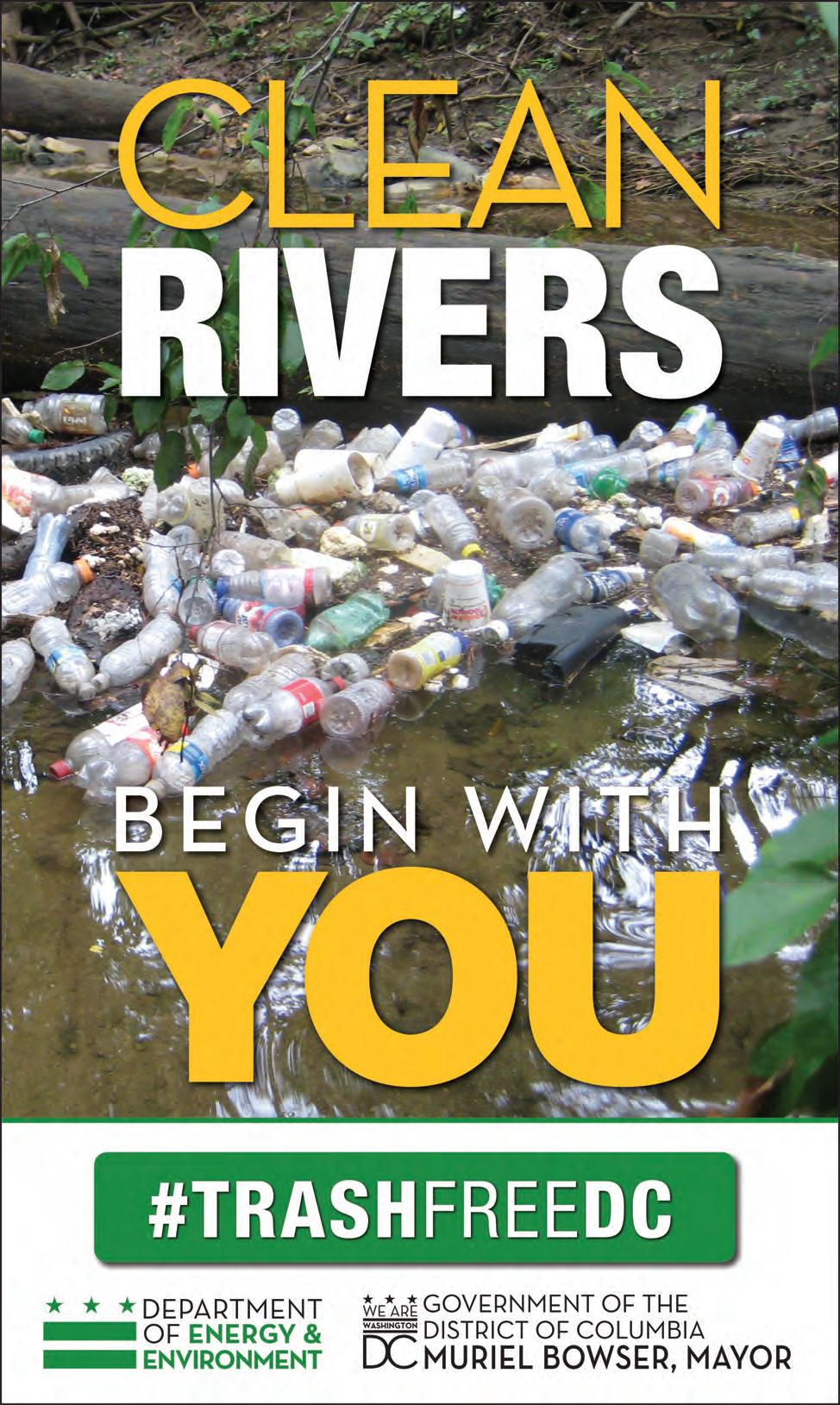
4 minute read
Here2HelpDC: Managing a
#Here2HelpDC Managing a COVID Side Effect: High Utility Bills
Have you checked your utility bills lately? With the “away” settings on thermostats collecting virtual dust, home internet routers working overtime, our electricity, water, and gas bills have increased. The DC government has noted these added household expenses and their impacts on families who are already stressed by the ongoing pandemic. Financial assistance is now available to residents struggling with unpaid DC Water bills during public health emergency and 105 days thereafter. A program to help income-qualified and senior District residents with the repair or replacement of hot water tanks, central air conditioning units, and heating systems has been ex
by Catherine Plume

“I could really use some alone time, but at least the AC is on all day now!” Credit: P. Mason
panded to include the repair or replacement of window air conditioning units for owner-occupied condominium units and single-family homes. In June, four District agencies charged with serving DC utility consumers kicked off “#Here2HelpDC,” a public awareness campaign to inform residents and businesses about energy and money-saving initiatives that can help minimize negative financial impacts of the pandemic. #Here2HelpDC is a combined initiative of the Department of Energy and Environment (DOEE), the DC Public Service Commission (DCPSC), the DC Sustainable Energy Utility (DCSEU), and the Office of the People’s Counsel for the District of Columbia (OPC). You can access the various services and tips by searching “#Here2HelpDC” online. A few clicks reveal a wide array of tools and tips¬--everything from a virtual tour of OPC’s Smart Home & Energy Affordability Lab to how to better understand your electricity bill, and select an energy supplier on DCPSC’s new DC Power Connect website. Willie L. Phillips, Chairman of the DCPSC notes, “We want District residents and businesses to know that we are with them every step of the way during the COVID-19 recovery. By partnering with District agencies, consumers can easily find help and resources to maintain their essential services”.
Ted Trabue, Director of the DCSEU notes, “The District government and these agencies in particular are concerned that with many people staying at home and consequently using more electricity, gas and water, residents will be faced with higher bills than usual at a time when some may be struggling. In response to the pandemic, the DC Council passed emergency legislation prohibiting the disconnection of electric, natural gas, water, and telecommunications services for non-payment. Consumer advocates fear that when those restrictions are lifted, bills will be hard to handle, particularly for District residents out of work and owners of shuttered business experiencing financial hardship. We hope “#Here2HelpDC” can provide DC residents with some tips to help lessen the burden.”
DC also offers a wealth of options for saving money on utilities that are not related to the current health emergency, but with the FY20 DC fiscal year coming to a close and FY21 monies in shorter supply, be sure to take advantage of these programs now. • Now is a great time to go solar. Solar installation companies are allowed to work
during the health emergency, and in- come-qualified DC residents can ac- cess solar at no cost. See DC Solar for All at https://doee.dc.gov/solar- forall. DCSEU has a wealth of information about energy conservation and prod- uct rebates on their website. Did you know that you can receive a $50 re- bate on a smart thermostat or up to $375 on a central air conditioning unit or up to $100 for a mini-split system? And, with the confusing ar- ray of energy efficient light bulbs that are now on the market, they provide an easy guide to help you determine the best bulb for a specific location. Check out https://www.dcseu.com/ homes. With more people planting gar- dens this year, water use is on the rise. DOEE’s RiverSmart Homes program offers rebates for rain bar- rels as well as shade trees, and even permeable pavers. See https://doee. dc.gov/service/riversmart-homes. And, the DCPSC website provides information on low income dis- count programs for seniors and dis- abled residents for electricity, gas, and telecommunications at https:// dcpsc.org/Consumers-Corner/Pro- grams/Low-Income-Discount-Pro- gram.aspx.
People’s Counsel Sandra MattavousFrye notes, “Working together, we can teach consumers self-help measures that will save them from even more hard- ships when things get back to normal. I am pleased to have OPC participate in #Here2HelpDC. And, Tommy Wells, Director of DOEE adds, “#Here2Help- DC will culminate later this summer with a virtual summit where agency leaders will urge consumers to take advantage of pay- ment plans, financial assistance programs, rebates, and incentives to help save ener- gy and money.” Stay tuned and get those utility bills under control! Catherine Plume is a lifelong environmentalist, a writer, and blogger for the DC Recycler: www. DCRecycler.blogspot.com; Twitter: @DC_Recy- cler. She is also the Chair of the DC Chapter of the Sierra Club, however, perspectives expressed are her own and do not necessarily represent the positions of that organization. u








